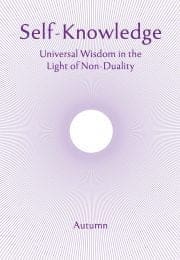Life Skills for Inner Peace and Freedom
It is sometimes said that every person who comes into this world has their own unique contribution to make. Each of us has a special gift or talent, and, given the right circumstances—the right shaping influences—our gift will develop and flower.
This way of thinking—that we all have something we can do that others cannot do—is reflected in the old story about the mountain and the squirrel. The mountain said to the squirrel: ‘I can bear on my back a million trees, carrying a billion acorns. What can you do?’ The squirrel said: ‘It’s true, I can’t carry all that. But at least I know how to crack a nut.’
Another way of thinking about how we can best express ourselves and gain fulfilment, is to suggest that we can all become masters—or creative experts—in one fundamental skill or talent which is the source of all other talents. This is the skill in working on the precious material of our own inner life—our mind—with its emotions, imagination, reason, memory, will and so on.
We may say: ‘I agree that we can work with the mind—in fact, that is the only way we can progress in anything. But how can you work on the mind and what is the point of doing so?’
It is true that our whole training and adaptation to life so far has been through developing and applying various mental skills, and it may be hard for us to imagine how our mind can have any use or value that is not related to our practical life. But we also need to recognize and understand that our mind does have a meaning, purpose and potentiality superior to anything that can be expressed outwardly. For the mind is far more than a generator of thoughts and feelings. That is just its surface life. Our mind also has depths and, ultimately, has for its inner support a pure essence, a ground of being, that transcends the mind as we know it, and is without any trace of unrest, imperfection or limitation. It has been called ‘that region of self-experience which knows no horizon’. It is this innermost aspect of our experience that is referred to in the classical texts when they speak of ‘perfect being’, ‘pure consciousness’, ‘waveless bliss’, ‘the heavenly realm within one’s own heart’. In the Chinese tradition the sage Mencius has said: ‘He who gets to the bottom of his own mind, comes to know his own nature. Knowing his own nature, he also knows the way of Heaven.’
Subscribe or enrol for free guest access to read all of this article and Self-Knowledge online.
Already subscribed or enrolled? Log in:


